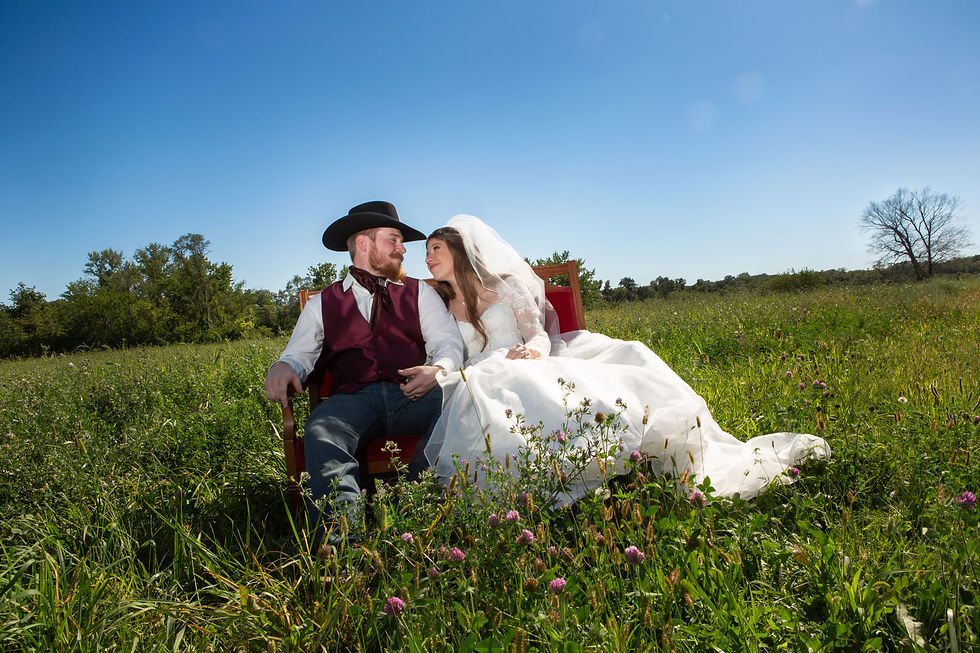Essential Tips for Your Iowa Wedding Rehearsal Planning
- Countryside

- Jul 23, 2025
- 4 min read
The wedding rehearsal is a crucial part in the wedding planing. But how do you plan a wedding rehearsal? Here's some essential tips for planning your Iowa wedding rehearsal.
Planning a wedding can be both exciting and stressful. As your big day approaches, one crucial event is the wedding rehearsal. This gathering is not just a practice run but a fantastic opportunity for families and friends to connect before the celebration. For couples in Iowa, knowing how to plan the rehearsal can truly elevate the entire experience. Here are some essential tips to consider when organizing your Iowa wedding rehearsal.

Understand the Purpose of the Wedding Rehearsal
The wedding rehearsal serves as a crucial practice session to iron out the logistics of the ceremony. It helps the couple, bridal party, and officiant clearly understand their roles and responsibilities. Familiarizing everyone with the sequence of events can significantly reduce pre-wedding jitters and ensures a smoother ceremony.
Make a checklist of critical elements to practice, including:
The procession
The recession
Any readings or special music
The couple's vow exchange
By treating the rehearsal as an integral part of your wedding preparation, everyone can feel more comfortable and confident on the big day.
Determine the Right Location
Choosing the right venue for the rehearsal is essential for establishing the atmosphere for your wedding. Ideally, hold the rehearsal at the ceremony site. This approach allows everyone to appreciate the space and visualize the upcoming event.
If meeting at the main venue is not possible, select a nearby location similar in vibe. For instance, a charming local park or a family member's home can create a relaxed setting to practice.

Create a Detailed Timeline
Having a clear timeline is vital to keep everything organized. Make sure to include:
Your planned start time
Estimated duration
Roles for each participant
Allocate specific time for various segments, like walking down the aisle or practicing traditional elements. A well-structured rehearsal often leads to a more seamless wedding ceremony. For example, breaking the rehearsal into 10-minute segments can ensure that everything gets covered without feeling rushed.
Keep It Short and Sweet
Rehearsals do not have to be lengthy—aim for about 30 to 45 minutes. A concise agenda allows participants to stay focused and engaged.
Make it enjoyable. Encourage lighthearted conversations or even a gentle joke to help everyone relax. Keeping the atmosphere upbeat helps participants unwind and enjoy the experience, setting a positive tone for the upcoming celebration.

Involve Key Participants
Ensure that all essential participants, including the couple, bridal party, parents, and officiant, are present during the rehearsal. Their involvement clarifies logistics and allows immediate answers to any questions.
If anyone cannot attend, plan a brief meeting before the big day to cover the key elements. For instance, you could set up a 15-minute video call to involve long-distance family members, ensuring everyone is on the same page.
Rehearse with the Officiant
Your officiant’s presence and involvement in the rehearsal are crucial. Their insights can help clarify the ceremony's flow and address unique elements of your vows or traditions.
An officiant who is actively involved can guide the couple and bridal party smoothly through the rehearsal. For example, if you plan to incorporate a special unity ceremony, rehearsing it with the officiant can make execution seamless on the wedding day.

Don’t Forget the Tech
If your ceremony includes music, readings, or presentations, rehearse those elements, too. Check sound systems and technology in advance to avoid any complications on the day of the wedding.
Make sure the person responsible for music or tech is present. This opportunity allows them to see the setup and understand cue timings—crucial for a smooth performance. For weddings involving live musicians, a sound check during the rehearsal can be immensely beneficial.
Plan for Post-Rehearsal Celebrations
Consider hosting a casual gathering after the rehearsal. This can be something simple, like a dinner at a nearby eatery or a picnic in a local park.
Such gatherings not only allow families to meet but also give everyone a chance to relax prior to the wedding day. With Iowa's beautiful landscapes, you can find lovely venues that make post-rehearsal events enjoyable and memorable.

Prepare for the Weather
Iowa weather can be unpredictable. If your rehearsal is outdoors, always have a backup plan for rain or extreme temperatures to keep everyone comfortable.
Whether it means reserving an indoor venue or renting a tent, being prepared will ensure your rehearsal stays afloat, even if the weather does not cooperate.
Communicate Clearly with Everyone Involved
Clear communication is crucial for a successful rehearsal. Send all relevant details via email or group messaging apps well ahead. Include information such as:
The time and location
The rehearsal agenda
This ensures everyone knows what to expect and arrives prepared, contributing to an organized and enjoyable rehearsal.

Thank you!
We are dedicated to using our platform to support locally owned wedding venues. In every blog we write, we will include 5 to 10 locally owned wedding venues who use their articles to support their colleagues and the wedding industry in ways that are not always recognized but are essential. If you are searching for a wedding venue, please consider a locally owned venue, you can find locally owned wedding venues featured on this wedding venue map.





Comments